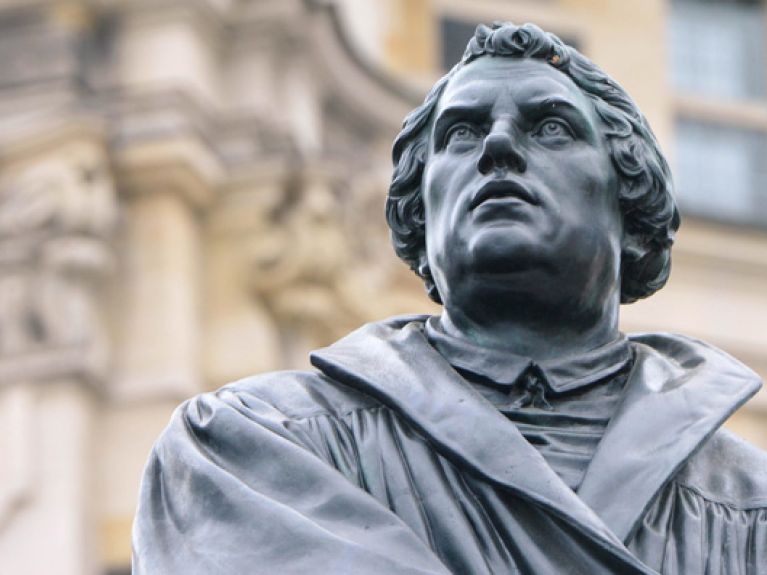500th anniversary of the Reformation
Martin Luther published his 95 Theses 500 years ago – and changed the world forever.

“The Full Power of the Reformation” is the slogan the organisers are using to promote the three national special exhibitions during the 500th anniversary year of the Reformation. It is accompanied by an image of a hammer, one of the most common symbols used to represent Reformer Martin Luther. After all, that is the picture people all over the world have of him: standing in front of the Castle Church in Wittenberg on 31 October 1517 and nailing his 95 Theses to the heavy wooden door. His Theses profoundly criticised the practices of the Roman Catholic Church and demanded a transformation of the faith.
It is precisely this man and this moment that Protestants are celebrating worldwide 500 years later. The fact that Luther may not have hammered his Theses to the door himself – if anyone did that at all and Luther did not simply publish them in a letter – plays only a subordinate role for them. What is important to Protestants is Luther’s courage to express criticism, his non-conformity and his persistence, which is summed up in the saying attributed to him: “Here I stand; I can do no other.”
Major influence on the German language
With his words and deeds Luther changed a great deal – not only in the Church, but also in politics, society, learning and art. Incidentally, he was the creator of numerous metaphors that are still naturally used in German today. All these ideas and impulses are being celebrated during the festivities for the Reformation jubilee. They are being held at the different places where Luther lived and worked: for example, in his home town of Eisleben; in Erfurt, where he studied; at Wartburg Castle, where he hid for almost a year – as a condemned “heretic” – and translated the Bible into German; and, of course, in Wittenberg. In addition to Luther’s achievements, attention will also focus on his darker sides – for example, his anti-Semitism.
Luther’s views on Jews are appalling and must be completely rejected, says Federal President Joachim Gauck, who is the main speaker at the official ceremony in Berlin on Reformation Day. Gauck nevertheless considers the jubilee an opportunity “for a modern, inquiring society in a corruptible world to see in Luther a historical figure that can help in the search for truth and justice and bestow trust in God”. Luther’s understanding of freedom, “that is not only freedom from something, but above all freedom to do something” can also provide orientation for politics today.

